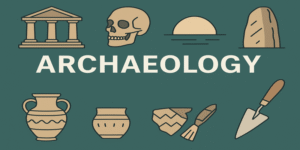Christianity is one of the world’s most widespread and influential religions, with over 2.4 billion adherents globally (Pew Research Center, 2021). As a monotheistic faith, Christianity is rooted in the life, teachings, death, and resurrection of Jesus Christ, a 1st-century Jewish preacher considered by Christians as the Son of God and the Messiah. Emerging from Judaism in the Roman province of Judea, Christianity rapidly evolved into a global religious force, shaping civilisations, moral systems, politics, and cultural identities across centuries.
Origins and Development
The foundation of Christianity lies in the New Testament, especially the four canonical Gospels—Matthew, Mark, Luke, and John—which recount the birth, ministry, crucifixion, and resurrection of Jesus. These writings, compiled between 60–110 CE, are complemented by letters from early Christian leaders, especially Paul of Tarsus, whose epistles formed much of Christian theology (Brown, 2012).
Christianity initially developed as a Jewish sect, but quickly distinguished itself by its universalistic approach—extending religious inclusion to Gentiles (non-Jews), thereby expanding its reach beyond the confines of Jewish law (Ehrman, 2008). The Council of Nicaea in 325 CE, convened by Emperor Constantine after his conversion, established formal Christian doctrine, including the Nicene Creed, thus institutionalising the religion within the Roman Empire (MacCulloch, 2011).
Core Beliefs and Practices
Christian doctrine is centred on belief in one God, expressed in three persons—the Trinity: God the Father, God the Son (Jesus Christ), and God the Holy Spirit. The death and resurrection of Christ are seen as acts of divine salvation, offering eternal life to believers (Wright, 2003).
Key practices include:
- Baptism, signifying initiation into the Christian community
- Holy Communion (or the Eucharist), commemorating the Last Supper
- Prayer and Scripture reading, especially of the Bible
- Observance of holy days, such as Christmas (birth of Christ) and Easter (resurrection)
Christianity places a strong emphasis on morality, especially the teachings found in the Sermon on the Mount—such as loving one’s neighbour, forgiveness, and humility (Matthew 5–7, New International Version).
Major Branches
Christianity is broadly divided into three major branches:
- Roman Catholicism – Recognises the Pope as the spiritual leader. It holds sacraments and tradition in equal authority with scripture (Catechism of the Catholic Church, 1993).
- Eastern Orthodoxy – Prominent in Eastern Europe and Russia. Emphasises mystical theology and the authority of early Church Fathers.
- Protestantism – Originated from the Reformation led by Martin Luther in the 16th century. Stresses sola scriptura (scripture alone) and justification by faith.
These divisions are not merely theological but also represent differing liturgical styles, ecclesiastical hierarchies, and interpretations of Christian life.
Global Spread and Cultural Impact
The missionary efforts of the early Church, particularly by figures like Paul and later monastic orders, allowed Christianity to spread rapidly across the Roman Empire and beyond. By the time of the Middle Ages, Christianity had become the dominant religion in Europe, influencing everything from law and art to education and philosophy (González, 2010).
During the Age of Exploration, Christian missionaries accompanied European imperial powers, establishing the religion in Africa, Asia, and the Americas. While this facilitated religious diffusion, it also became entangled with colonialism—a tension still discussed in modern theological ethics (Walls, 1996).
Today, Christianity thrives across the globe, with the global south—particularly Sub-Saharan Africa and Latin America—becoming new centres of Christian dynamism (Jenkins, 2006). According to recent data, countries like Nigeria and Brazil now have some of the world’s largest Christian populations (World Christian Database, 2023).
Contemporary Challenges
Christianity in the 21st century faces a series of complex issues:
- Secularism in Western societies has led to a significant decline in religious affiliation, especially among youth (Seong, 2025).
- Interfaith dialogue and religious pluralism challenge exclusivist theological claims.
- Social issues, including gender equality, LGBTQ+ rights, and economic inequality, continue to spark debate within Christian denominations (Gambe, 2025).
- The rise of Pentecostalism, especially in Africa and Latin America, has redefined Christianity’s emotional and spiritual practices, often clashing with traditional doctrines (Hee, 2025).
Despite these challenges, Christianity continues to exert global influence in the areas of humanitarian work, peace-building, and education.
Christianity and Ethics
At its core, Christianity proposes a moral vision grounded in agape—unconditional love. It motivates efforts in social justice, charity, and reconciliation. Christian organisations have been pivotal in founding hospitals, schools, and relief missions globally (Jennings, 2025).
Christian ethics are also central to contemporary debates on bioethics, environmental responsibility (stewardship), and political activism, especially in addressing climate change and refugee crises (Van der Hoek, 2025).
Christianity, though rooted in a small region of the Middle East, has become a world religion influencing billions. Its foundational beliefs—monotheism, salvation through Christ, and moral love—remain central to its identity. While deeply divided in structure and interpretation, Christianity has shown remarkable resilience and adaptability, even amid modern secular trends and interreligious competition.
As scholars like MacCulloch (2011) and Jenkins (2006) argue, Christianity is not only a religion but a cultural and civilisational force, continuously reshaping itself across times, tongues, and territories.
References
Brown, R.E. (2012). An Introduction to the New Testament. Yale University Press.
Catechism of the Catholic Church. (1993). Vatican.va. https://www.vatican.va/archive/ENG0015/_INDEX.HTM
Ehrman, B. (2008). Christianity: The First Three Centuries. Oxford University Press.
Gambe, E. (2025). Domestication of the protocol to the African Charter on the rights of women in Africa: the Nigerian religio-cultural perspective. University of Cape Town.
González, J.L. (2010). The Story of Christianity, Vol. 1 & 2. HarperOne.
Hee, K. (2025). Prosperity Gospel: A Pastoral Perspective. AJPS. https://www.researchgate.net/publication/394491513
Jenkins, P. (2006). The Next Christendom: The Coming of Global Christianity. Oxford University Press.
Jennings, J. (2025). One Pentecostal Ministry in Japan: The Salvation Campaign for Ten Million. AJPS.
MacCulloch, D. (2011). Christianity: The First Three Thousand Years. Penguin Books.
Pew Research Center. (2021). The Future of World Religions. https://www.pewresearch.org/religion
Seong, H. (2025). The Rise of Religious Nones and Its Impact on Interreligious Dialogue. Religions, 16(8), Article 1057.
Van der Hoek, S. (2025). The Role of Religion in Refugee Entrepreneurship. db-thueringen.de.
Walls, A. (1996). The Missionary Movement in Christian History. Orbis Books.
Wright, N.T. (2003). The Resurrection of the Son of God. Fortress Press.
World Christian Database. (2023). Christian Populations by Country. https://worldchristiandatabase.org









